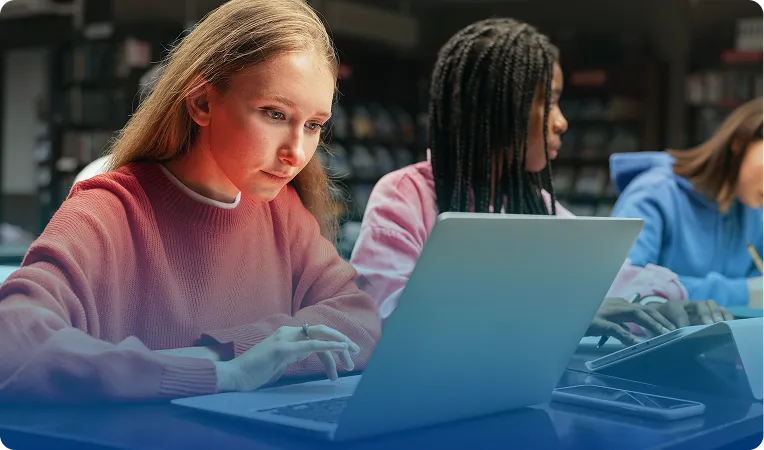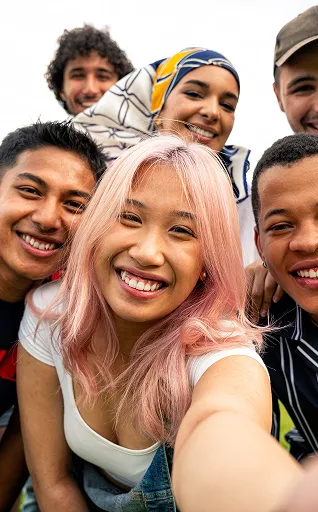
We offer a safe space for teens from all diverse backgrounds to stabilize, find sobriety, and improve their quality of life. Our center is located in Winter Springs, Florida with dedicated staff onsite 24/7 to provide structured supervision.
The facility includes a high-quality computer lab for teens to focus on their academics during their stay, a recreational room for game nights, and a basketball court to stay active. Our compassionate team embodies the commitment to making a positive impact in the lives of the teens we serve.
Hallucinogens are psychedelic drugs that cause changes in perception, senses, and mood. Teens may experiment with these as a party drug, to gain new insights, expand their consciousness, or simply out of curiosity. Psychedelics are potent and can cause long-term changes to the developing brain. There is a risk that psychedelics increase the risk of drug-induced psychosis or bring underlying mental health problems to the surface.
Teens who take psychedelics during development who struggle with unresolved mental health challenges are at an increasingly high risk of developing anxiety, depression, psychosis, and even suicidal ideation.
At Lotus Behavioral Health, we understand the complexity of hallucinogen abuse. Many young people and young adults experiment with these substances to expand their consciousness, explore their identity, and find new ways to express emotions or be creative. Throughout our treatment programs, teens have access to evidence-based mental health therapies and creative art therapies to aid in emotional processing and reduce cravings for drugs and alcohol. Some of the therapies offered for teens in hallucinogen abuse treatment include:
Although teen hallucinogen abuse is not as common as some other substances, such as alcohol or nicotine, data still reports that around 2% of 15 to 16-year-olds report lifetime use of psychedelics such as LSD, and around 5% of 18-year-olds. Some of the most commonly abused hallucinogens by teens include:



Our safe and structured 5 to 12-week residential program offers 24/7 care, a blend of evidence-based therapies, and medication management to treat hallucinogen abuse and co-occurring mental health disorders in teens.
Explore Program

This intensive 7-day program builds on the skills learned in residential treatment. Our PHP includes room and board, and teens will continue to live at the facility for the remainder of their treatment.
Explore Program

Our IOP provides a less-intense treatment approach meeting 3-4 days a week, allowing teens to live at home, while still receiving intensive treatment.
Explore Program

Virtual and in-person outpatient services allow teens and their families to participate in treatment while still living at home and staying involved in their day-to-day activities.
Explore Program
We understand that teenage addiction is often driven by underlying mental health problems and trauma. When your teen first arrives for treatment, they will be given a comprehensive substance abuse evaluation and mental health assessment to identify what treatment is most appropriate for their needs.
Lotus Behavioral Health recognizes the importance of family in the recovery journey for teens. We encourage parents to stay involved in their teen's treatment process for an increased success rate. We focus on equipping teens with the tools to repair damaged relationships, manage conflict, and form connections.
During treatment, your teen will participate in intensive individual and group therapies such as CBT, DBT, motivational interviewing, and medication management. Our licensed therapists will help teens modify negative thinking patterns that drive their drinking, set treatment goals, and develop positive coping strategies.
Our team understands the sensitive nature of teen development. This period is characterized by self-exploration around culture, race, sexual orientation, and gender identity. Our staff is trained in diversity to provide judgment-free support so teens can explore these topics, which can greatly impact their mental health and recovery journey.
.webp)

Lotus Behavioral Health holds both treatment and academics as equally important. We understand many teens who enter treatment fall behind in school, creating extra challenges when they transition back to their community. We partner with local schools to optimize success for teens in our Residential and PHP programs. Teens in our program spend time in the classroom each day while continuing to make progress in their recovery.
We focus on relapse prevention planning by helping teens build a strong support system in their community. This may include involving family or friends in the recovery process, ensuring teens meet academic requirements with educational support, and connecting them to a peer recovery network.
.webp)
Many hallucinogens are classified as Schedule 1 drugs under the Federal Controlled Substances Act. Teens caught with psychedelics can face lengthy juvenile sentences, costly fines, and other legal consequences.
Commonly abused or experimented with psychedelic drugs among teens include magic mushrooms, LSD, and MDMA (ecstasy)
Yes, we accept most major insurance providers, including Cigna, Aetna, and BlueCross Blue Shield. Speak with one of our admissions members to verify insurance and find the best treatment plan for your teen.
We're ready to answer your questions and help guide your teen on the path of recovery.
